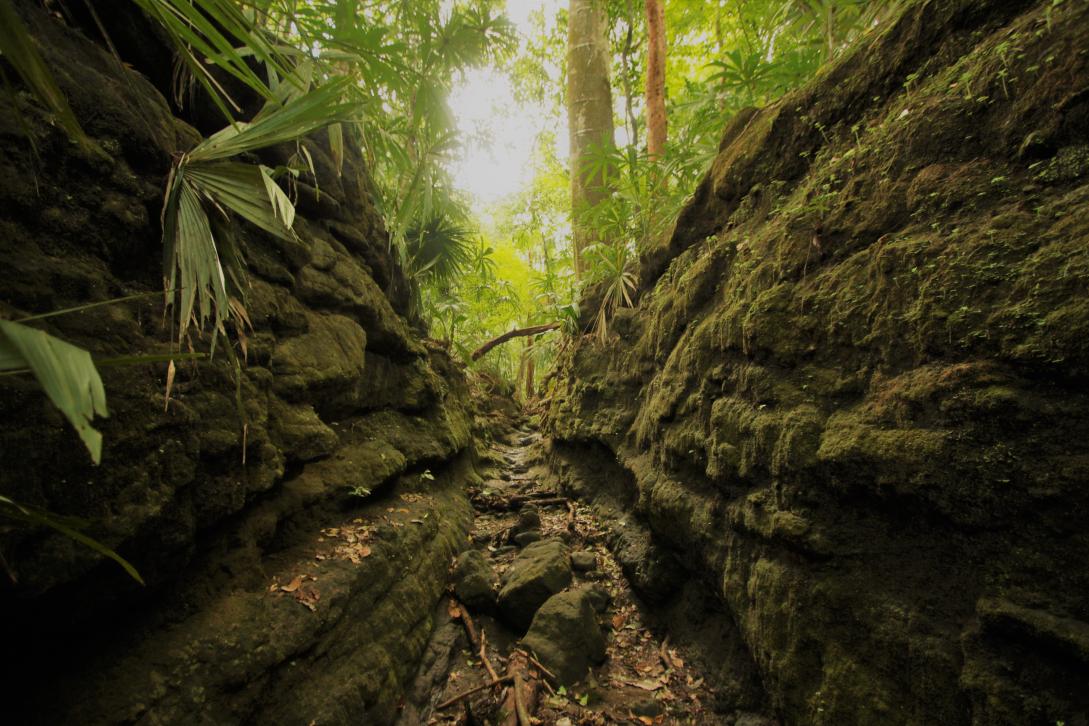Colonial routes, natural crossroads

Relevance of the project
Panama is the natural meeting point of different cultures, between North and South America, with Europe, Africa and Asia. Camino de Cruces and Camino Real have a high importance in historical perspective and as precursors of the current Panama Canal, bringing together diverse cultures, and nature and culture. While vestiges of numerous colonial routes remain, Panama is home to the only trans-isthmic one, linking the two oceans. The universal value of the Route plays a crucial role in its nomination for inclusion on UNESCO's World Heritage List.
The project Colonial routes, natural crossroads of the European Union (EU) aims to support Panama in its important work of protection, recognition and promotion of the Route, while reflecting for the first time on the significant contribution of the Caminos to relations between Panama, Europe and the world. The colonial-era route is a vestige of Europe's diverse cultural influence: first established by the Spanish, in competition with the Portuguese, the routes attracted Irish explorers and English pirates, while the construction of the canal was first attempted by the French.
Hence, the EU has identified the need to undertake actions to exchange knowledge, raise awareness and build community, thus inspiring visits to the sites that make up the Trans-Isthmic Colonial Route, as well as a reflection on issues related to memory and identity. By targeting not only the cultural sector but also the general public, the ultimate objective of the project is to promote rich and fair cultural relations between Panama and the European Union. In addition, the project will promote a fruitful two-way exchange of knowledge and experiences, through parallels with cultural routes in the EU, as well as the dissemination of lessons learnt and good practices from Panama. On the other hand, the roads are partially absorbed by biodiverse flora, which also raises questions about the link between culture and nature, heritage and climate action, and sustainable tourism.
In view of all of the above, the Delegation of the European Union led a consultation and co-design process with Panamanian and European partners between October and December 2023. The project proposal Colonial routes, natural crossroads was first presented to the call of EU National Institutes of Culture (EUNIC), but the high level of competition (only 8 funded proposals out of the 38 received) and ambition of the Panamanian project did not allow it to advance at that time. Subsequently, the Delegation submitted the idea to the call of the Cultural Relations Platform and was one of the 11 selected among the 43 applications submitted. Two renowned experts are implementing the project: from the European side, Dr. Eleonora Berti, and from the Panamanian side, Dr. María Isabel Arrocha.
Objectives
-
Main objective: Intercultural dialogue
The project will inspire reflection and debate on Panama-Europe cultural relations from the shared past to the present, and the crucial role of routes as facilitators of exchanges. It will build trust, mutual understanding and a sense of community, while will also addressing issues of memory and identity. Fair interactions will focus on the joint production of knowledge, the exchange of skills and the value of cultural diversity. This will directly contribute to Sustainable Development Goal (SDG) 17, in particular 17.16 and 17.17.
- Secondary objective: Environmental and economic sustainability
Panama is known for its biodiversity, and climate change is a shared concern with the EU. However, there is a need to raise awareness of the culture-climate nexus to protect cultural and natural heritage and stimulate climate action. The unique location of the Caminos within natural parks requires the care of land and water resources (SDGs 14.2 and 15.2). At the same time, the rehabilitation and promotion of cultural heritage attracts tourism and drives economic growth. In other words, the Route has the potential to generate sustainable tourism and thus contribute to the development of coastal and inland areas (SDGs 8.3 and 8.9). Cooperation with heritage entities on the Caribbean and Pacific sides will further reduce inequalities and foster the inclusion of communities (SDGs 10.2 and 10.3).
Indicative activities
-
Network of at least 30 professionals in the area of cultural heritage from Europe, Panama and Latin America, who meet at least three times (online or hybrid) during the duration of the project to exchange information and good practices
- Study/guide presenting the sites along the colonial route, accompanied by a reflection on their relevance, cultural relations and shared values between the European Union and Panama, combining independent research and the contributions of the aforementioned network of experts
- Conference/fair to present the guide, exchange on different topics (e.g. conservation, community participation, etc.), conduct field visits, as well as jointly develop proposals for next steps
- Final report based on the conclusions of the fair with a view to measuring the achievement of the objectives and making recommendations
Implementation period
November 2024 – May 2025
Implementation instrument
Cultural Relations Platform, funded by the Foreign Policy Instrument of the European Union
Indicative budget
40.000 EUR
PRACTICAL INFORMATION
OVERVIEW
Ina KOKINOVA





